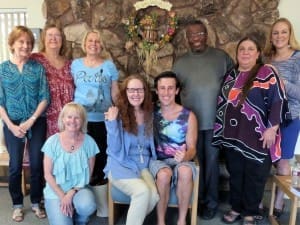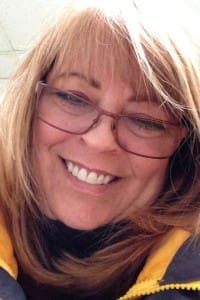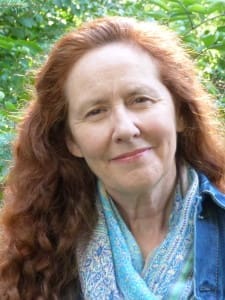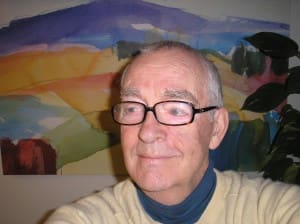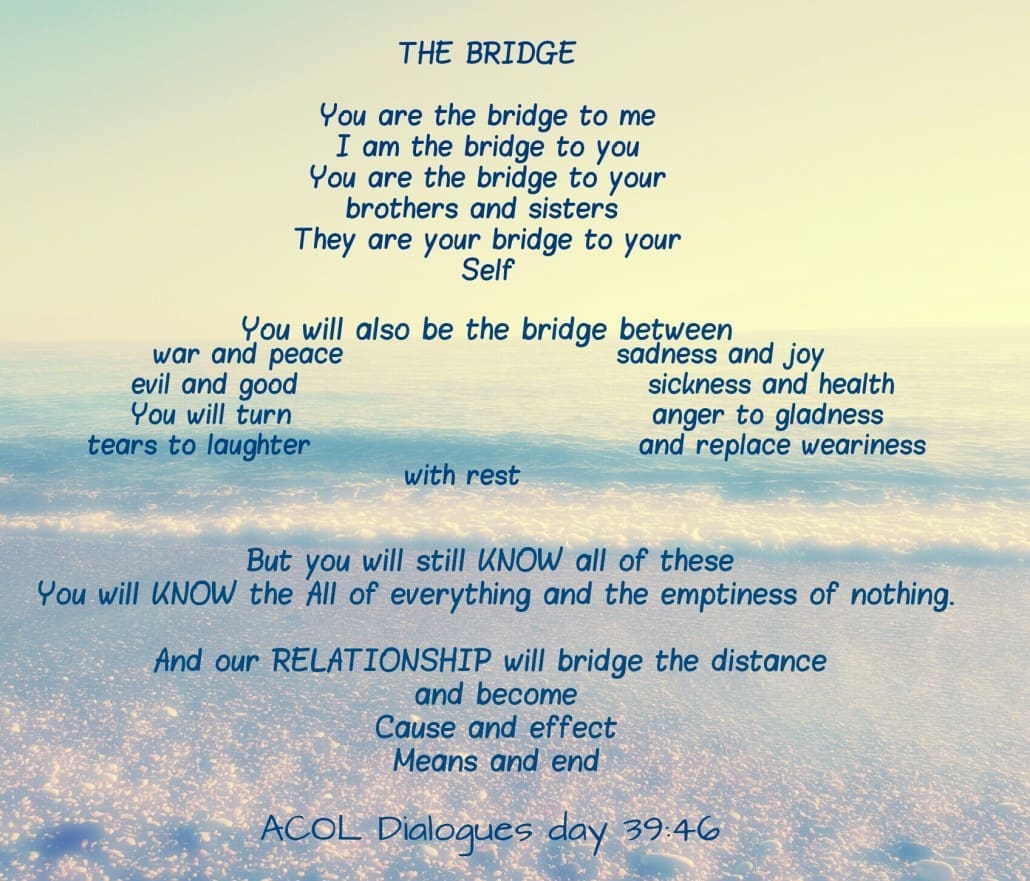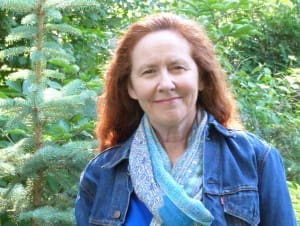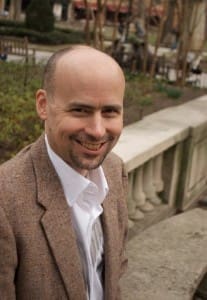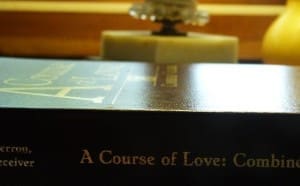
Mary Deeny
I came to know ACOL via the UPS guy! Being a book lover, my best friend is hands down Amazon. I can’t seem to help myself. If I don’t have a few books on hand that I haven’t read yet I seem to get the shakes.
Excitedly opening that distinctive box with the smiley face and seeing “A Course of Love” in it I said, “Awe shit! I ordered the wrong book!” I’ve never returned a book, so I gave it a glance over. As I started to read, I was amazed that it seemed “up my alley.” Being an ACIM’er I was super skeptical. I didn’t even know ACOL existed. I remember saying, “How come I’ve never heard of this before?” The further I read the more skeptical and drawn I was. I never expected another book like ACIM. It was different and yet the same. It was with great trepidation that I continued reading. Somewhere within the first book I was struck deeply. “I know this voice.” And just like that my brother came to me personally to continue the job he started.
Meg Wheatly, in her book on conversations,* suggests that, as we work together to restore hope to the future, “We need to include a new and strange ally—our willingness to be disturbed.” This quote came to mind as I read Mary Deeny’s expression. Mary is bold enough to be disturbed and brave enough to be disturbing.
“We need to include a new and strange ally—our willingness to be disturbed.” This quote came to mind as I read Mary Deeny’s expression. Mary is bold enough to be disturbed and brave enough to be disturbing.
There is a change taking place. As we move from the ego to the true Self with ACOL, (or through other ways) it suddenly becomes rather difficult to give any credence to the ego. We want to lock that closed door, because there’s no value in the ego that we have closed the door upon. But it’s hard to change, and it’s hard to challenge what others see as truth, or even as illusion.
Why, you might ask, would anyone bother? I think of it a bit like the old notions of sin that many of us grew up with. When you outgrow the idea of sin, hearing about it in a context that suggests it is real is awful, hearing it suggested that it is inescapable is just as bad, and eventually, hearing of it at all grows old and wearying. You begin to want to abide in a new environment, where that old idea is no longer a topic of conversation at all. And, you can become exasperated when old ideas sneak in where new ideas are taking root.
Why bother? In at least some churches, and definitely in some wonderful priests, rabbis, nuns and monks, that old idea of sin is given no space in which to abide. It is dropped from the vocabulary of love. This can have an amazing effect. Hard edges soften, the language of love returns, and new ways restore the promise of our true nature. Then, the reason for the emphasis on sin that once seemed so needed, vanishes. In this same way, many in the ACOL community are finding this can happen with the ego and the ego’s illusion. I welcome Mary’s voice to this Expressions page.
*(Turning to one another: simple conversations to restore hope to the future, Margaret K Wheatley.)
Humanity, The World and… the ego, by Mary Deeny
We are not the body but we ARE Being Human. I’m observing others around me lately still feeling as though being human is somehow shitty. They’re all tangled up with form. They feel that the body equates to being human and since the body is form it’s just a projection and therefore needs to be dispelled. They think that when they reach “enlightenment” they won’t see a body or any bodies or the world. That humanity is a dream in and of itself. Are we making this assumption that since we’re told we’re not the body it somehow means the body is bad . . . something that we aren’t because what we “really” are is better (invisible spirit), more benevolent? That what we are is better than who we are being? Are we comparing the invisible us to who we are being in form and judging the being part of us unworthy to be called part of creation? And are we defining form as not being a “true” or “real” part of creation?
Why is form so misunderstood? Don’t we realize this entire Course is about reconciling who we are, and that part of who we are is being human? We’re being told all about the creation of form and yet some still hold to an idea of form being just an illusion, and therefore something to overcome so we can get back to being only the stillness within God.
“. . . Being is. As love is. You have attached being to being human. In your quest to identify yourself, you have simply narrowed yourself to the visible and describable.” C:27.1
Now that we know there is an invisible part of us, have we gone to the opposite side of this spectrum and now limit ourselves to only the invisible and indescribable?
Being human is not the same thing as being a body, yet I feel that’s what some of us believe. Believing that being human means being a body disregards the absolute incredible creation the body is and denies an actual real aspect of ourselves which is “being in relationship.” Seriously…the body…what a freaking incredible thing! What a tool we have! We can’t come to know who we are through denying who we are being.
Humanity has gotten as much of a bad rap as God has. Aren’t we told we have no idea what a feat of creation humanity was and is?
“If you can imagine for a moment yourself as a being whose every thought became manifest, as perhaps you can envision from remembering your dreams in which anything can happen without a need for you to “do” anything and then becoming a form where expressing yourself depended upon what you could “do” with the human body, you can imagine the learning process that ensued. If your reality had been like unto the reality you experienced in dreams, can you not see that you would have to learn to breathe, to speak, to walk, much like a baby learns to do these things, and that these things were loving acts within a loving universe, a love filled learning process. A learning process that was as known to you and chosen by yourself as it was by God, because you and God are one.” T4:8.7
“God always knew what your mind chose to rebel against: that creation is perfect. Your mind, being of God, was constrained by the learning limits of the body and chose to rebel against the learning that was needed in order to come into the time of fullness of a being able to express itself in form, never realizing that this just delayed the learning that had to occur to release you from the limits you struggled against.” T4:8.9
Nowhere does Jesus say that not being human is the goal. What he says is that we are to pass through a learning and an unlearning process while being human in order to come into a time of fullness of being able to express ourselves in form. And that this learning/unlearning is an act of loving creation coming to completion.
“You who have come after me are not as I was but as I Am. Does this not make sense, even in your human terms of evolution? You are the resurrection and the life. How does this relate to your thinking? You have been reborn as god-man, as God and man united. The resurrection is the cause and effect of the union of the human and divine. This is the accomplished. This is in effect the way in which the man Jesus became the Christ. This is in effect the way.” T1:8.5-6
This describes the process of creation to me. The process by which fulfillment is made complete through the realization of who we are AND who we are being so that we can express the truth of who we are in form.
“[Y]ou must see that your Self is what is in need of identification and acknowledgment. This identification and acknowledgment was the stated goal of A Course of Love. It does not negate your existence as a human being nor does it deny your existence as being a gift of the Creator.” T1:4.4
Here’s what I’ve come to know:
Humanity is already divine by its very nature of being a creation. The merging of the human and divine isn’t two separate beings merging (even though it might feel like this). We can’t NOT be divine just as we can’t be separate from God. The marriage is accepting that being human is being divine. Through this idea being born and accepted the truth is made real. “A representation of the truth not only reveals the truth but becomes the truth. A representation of what is not the truth reveals only illusion and becomes illusion. Thus, as your personal self becomes a representation of the truth it will become who you are in truth.” T3:1.4
And what about the world—environments where we can feel, express, expand, experience and discover through form. Why aren’t we embracing our humanity? Why aren’t we saying, “Holy shit, how freaking incredible are we!” Hoorah! Don’t we see how extraordinary the world and humanity is? There’s a deep abiding love for humanity and the world. God himself tells us how he loves the very shape of our head and every hair that’s upon it! Look at how we’ve decorated the world. How can we not see the beauty of love being made manifest in form for our very own delight? Sights, sounds, smells. . .. The senses we get to partake in through the use of the body in cooperation with the world are incredible and quite frankly magnificent! Talk about abundance. It’s all right there before us and yet we struggle. Why? Because we think being human is ungodly.
“The world does not exist apart from you, and so you must realize your compassionate connection. The world is not a collection of cement buildings and paved streets nor of cold, heartless people who would as soon do you harm as good. It is but the place of your interaction with all that lives within you, sharing the one heartbeat.” C:20.17
I hear people say, “The world is just an illusion, it isn’t real.” (Personally, I’d like to see the words “illusion,” “ego” and “perception” get lumped into a bag with “shoulda’, woulda’, coulda’ and get tossed out of language altogether…never to be heard of again). Well, what does “real” mean anyway? Are we getting hung up on an absolute definition of a word instead of being open to the possibilities of what a word can infer?
The whole illusion, real, dream thing…is what we THOUGHT. Who we thought we were is the illusion, and along with it all the systems we put into place because of it—thought systems that seemed to limit our very nature. Illusion because our nature can never be limited. Isn‘t denying the truth of who we are what the ego is? A false sense of beliefs as they pertain to us being a body? An “if this, then that” way of thought. The ego isn’t something that requires endless work to defeat and years of intense study to “overcome.” Although some of us do just that.
We’re told that once we know truth of who we are, the ego is no more, in fact never was because it was never the truth. Do we define knowing the truth as living perfectly? Or having healed our bodies? Do we attribute knowing the truth with a list of accomplishments that must be met before we accept the truth of us? Do we notice a thought and still call it the ego and therefore decide it’s still there and hasn’t left? Hell, even calling the ego “ego” and or referring to it as an “it” makes it something it isn’t. We’ve turned an untrue belief into a monster that haunts us. So we hunt it, are on the lookout for it, create all these ways of dealing with it, and hide from it like a child afraid of the dark. We’re told illusion isn’t real. Well the ego is an illusion and isn’t real.
Doesn’t Jesus tell us a thousand times (ok, I’m exaggerating) that all we need is willingness. He even says a “little” willingness, not even a boat load. Willingness to do what exactly? Well, for me it’s all about acceptance. Willingness to accept the truth and then willingness to be the truth. Jesus even gives us an instruction to interrupt these thoughts. All we need do is say “I dedicate all thought to union.” Simply saying that interrupts the pattern of old thought. This reminds me of the “Golden Key.” Isn’t this the same thing? You want to interrupt a negative thought pattern, think about God instead. Jesus doesn’t say obsess over it, dissect it, judge it, argue with it and talk endlessly about it. Nope he doesn’t. What he says is don’t hold onto it. Allow it pass through. Don’t be afraid. It’s just a shadow. I say kiss the ego goodbye like an old lover. Thank it and bless it for everything it brought you and send it on its way. Doesn’t Jesus say this is the only real use for denial?
Isn’t it possible that desiring to express ourselves in physical form is a wonderful piece of creation? That being human is creation expressing? That we are in the evolution of creation coming to its fulfillment in providing us with our desire?
We’re told in A Note on Being:
What will there be to strive for? What quest will replace this quest for being? The quest for love’s expression – the quest to see, experience, and share, as many of love’s expressions as the word needs to be returned, along with you, to its own Self.
Does this seem like a long harrowing road? An endless quest? An endless quest for love’s expression is eternity itself.
Be happy that there is no end in sight to this road you travel now. It is simply the road of what is endlessly creating like unto itself.
You know how to respond to love, for you are love being. So be it. E.27-30
With Love,
Mary

